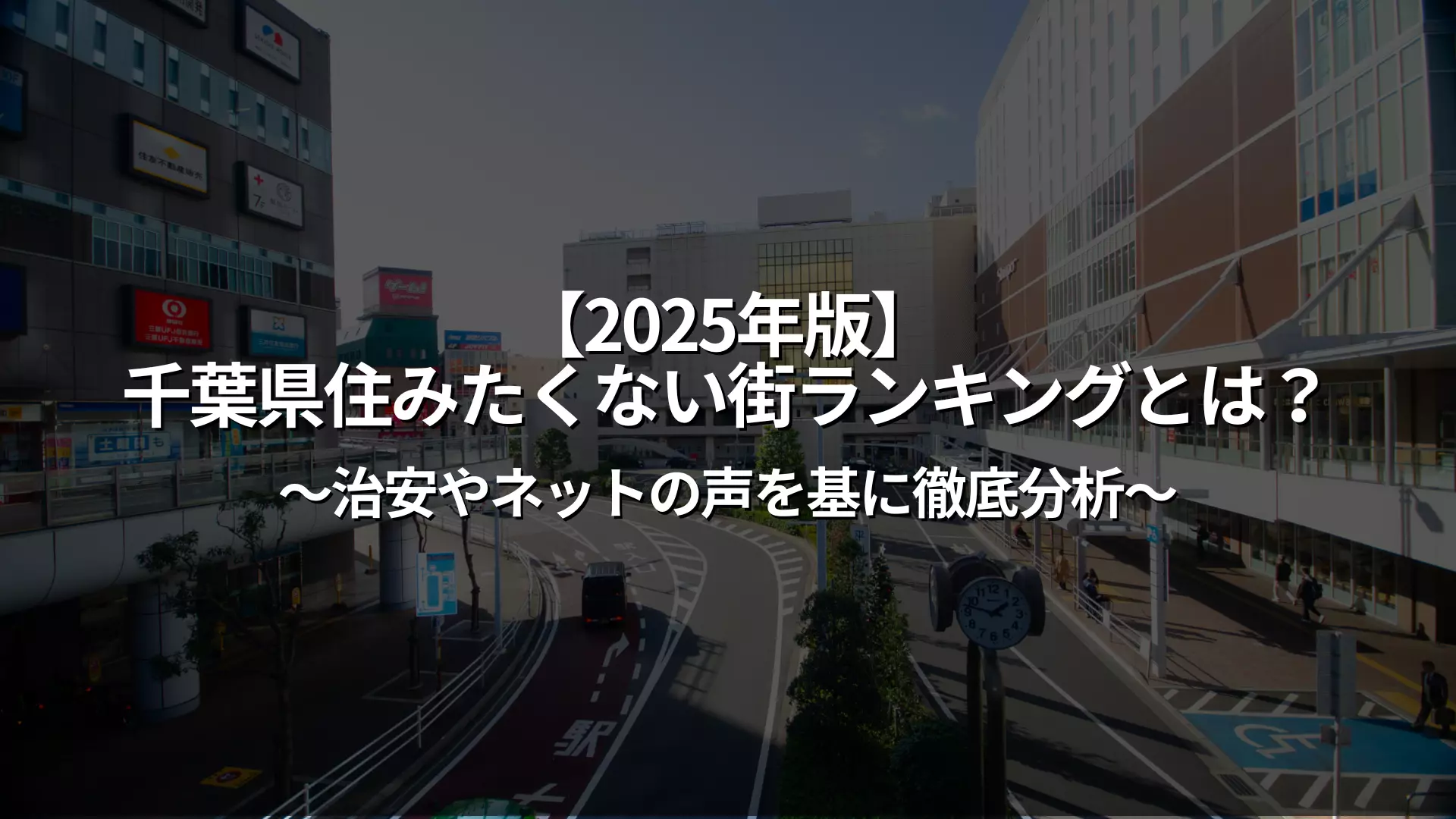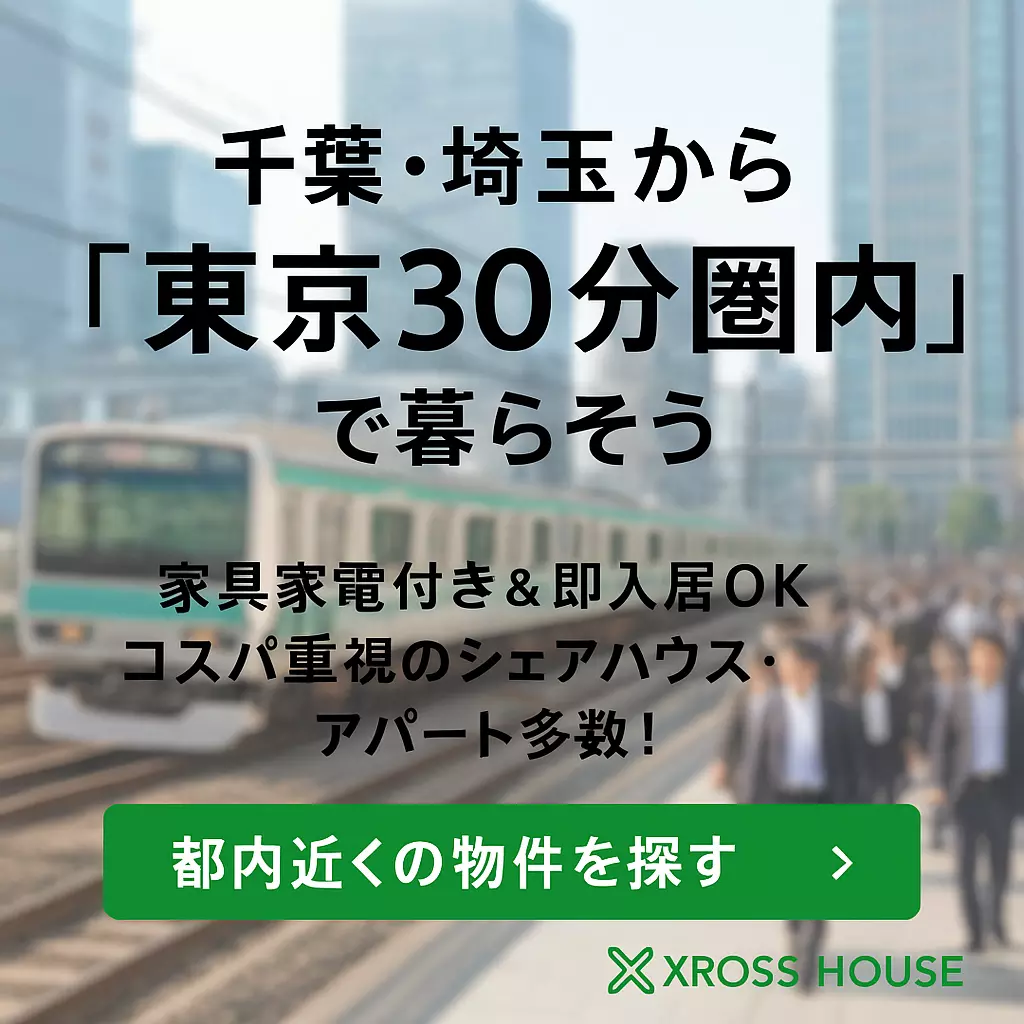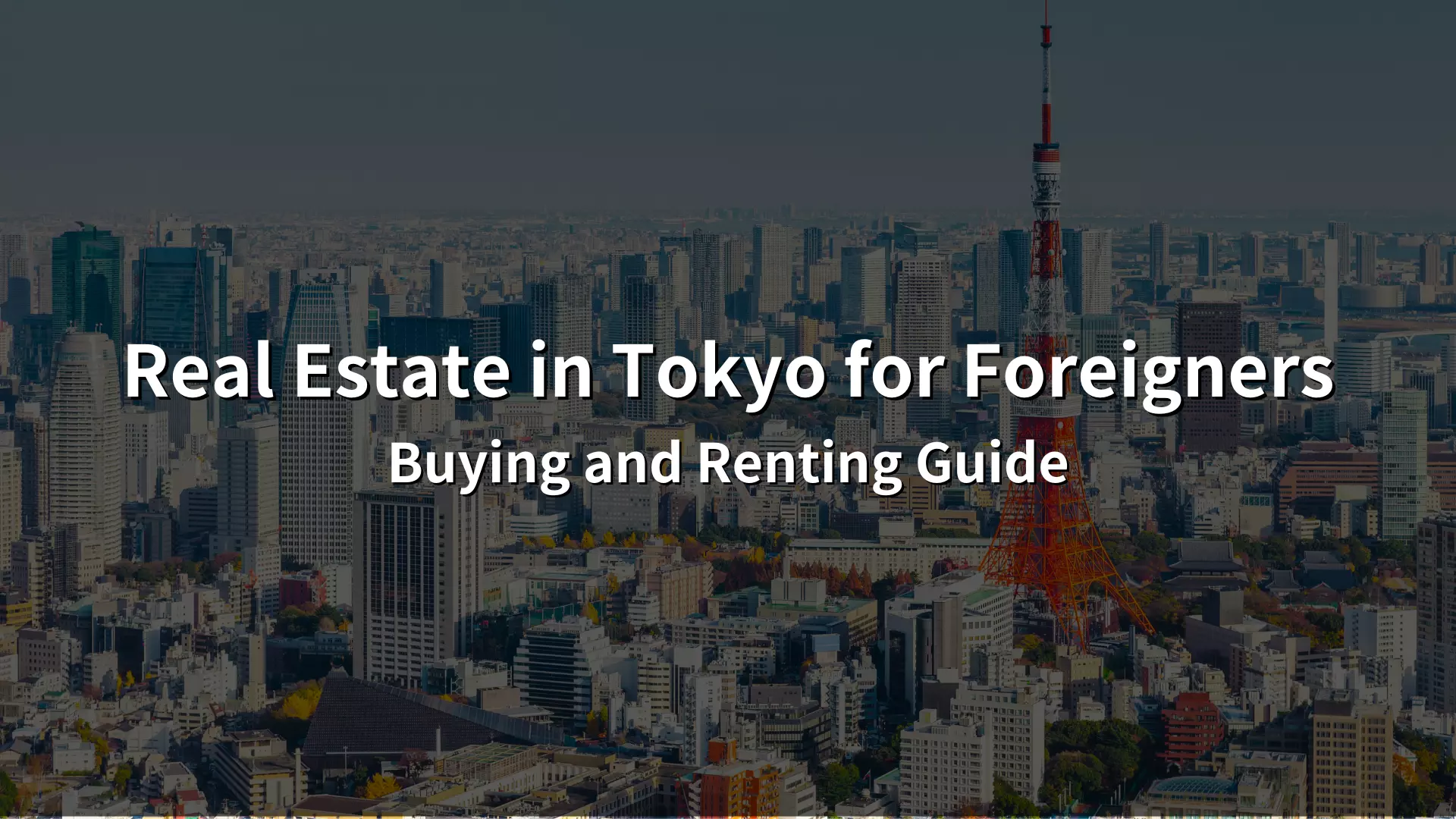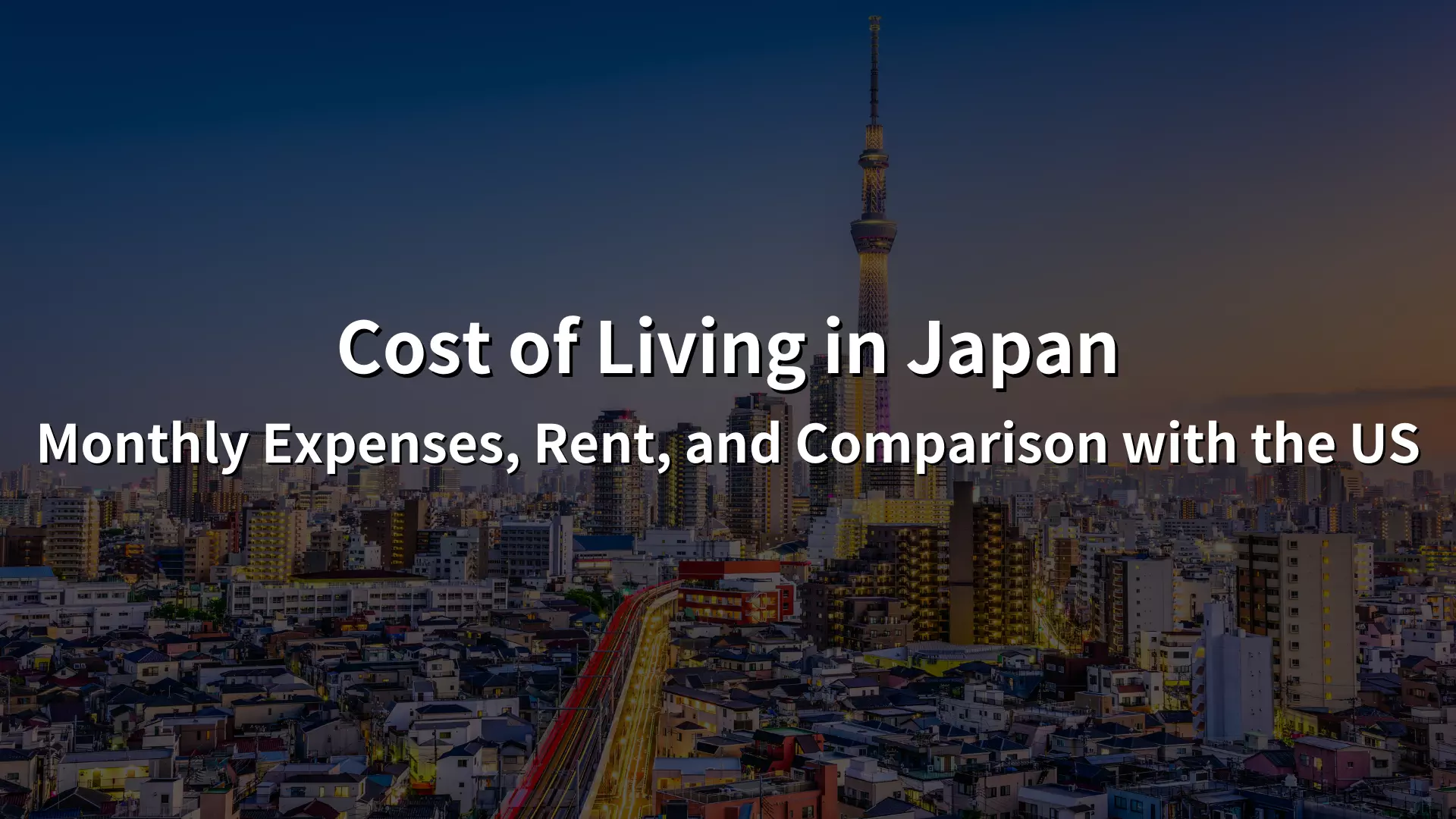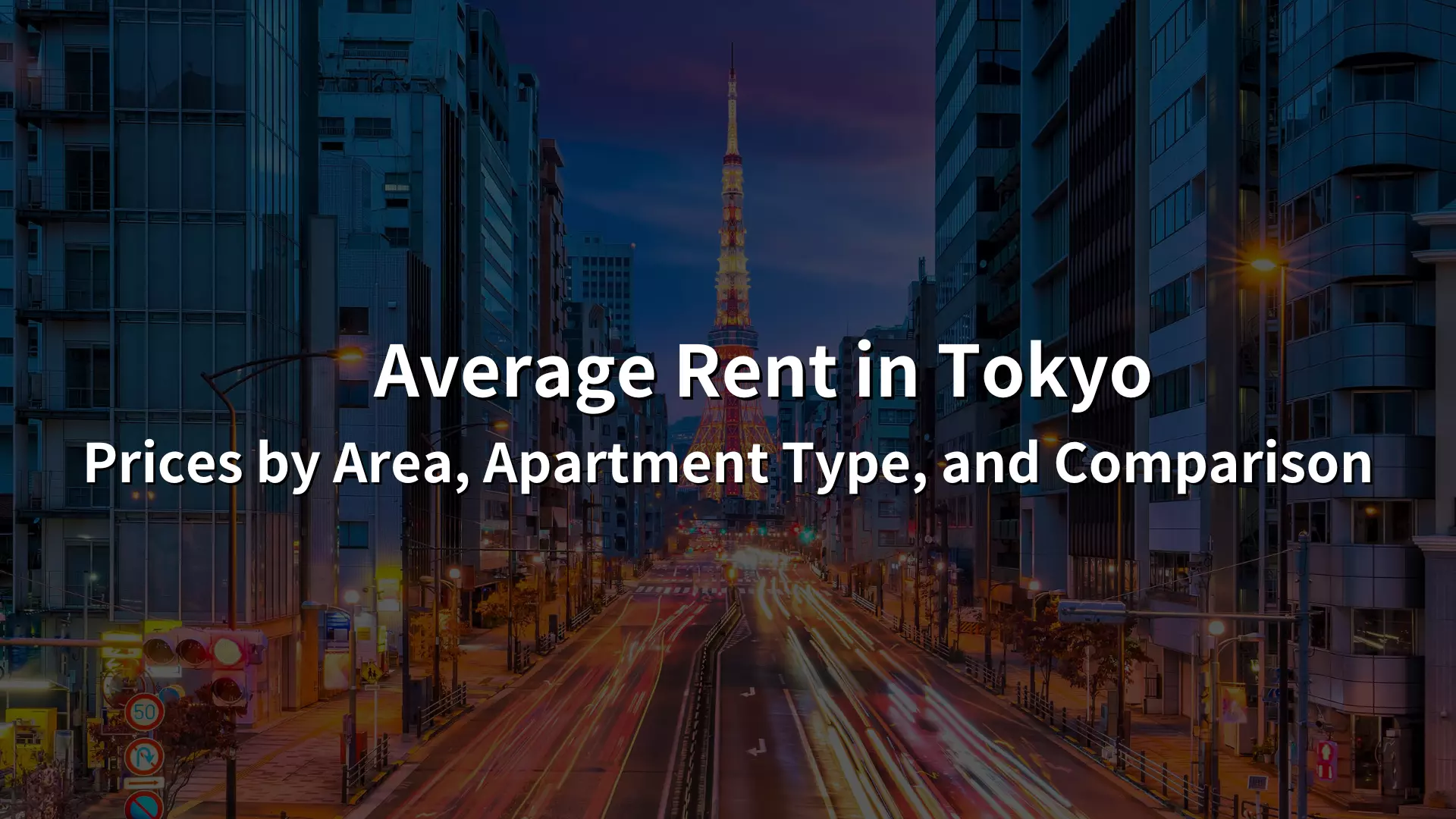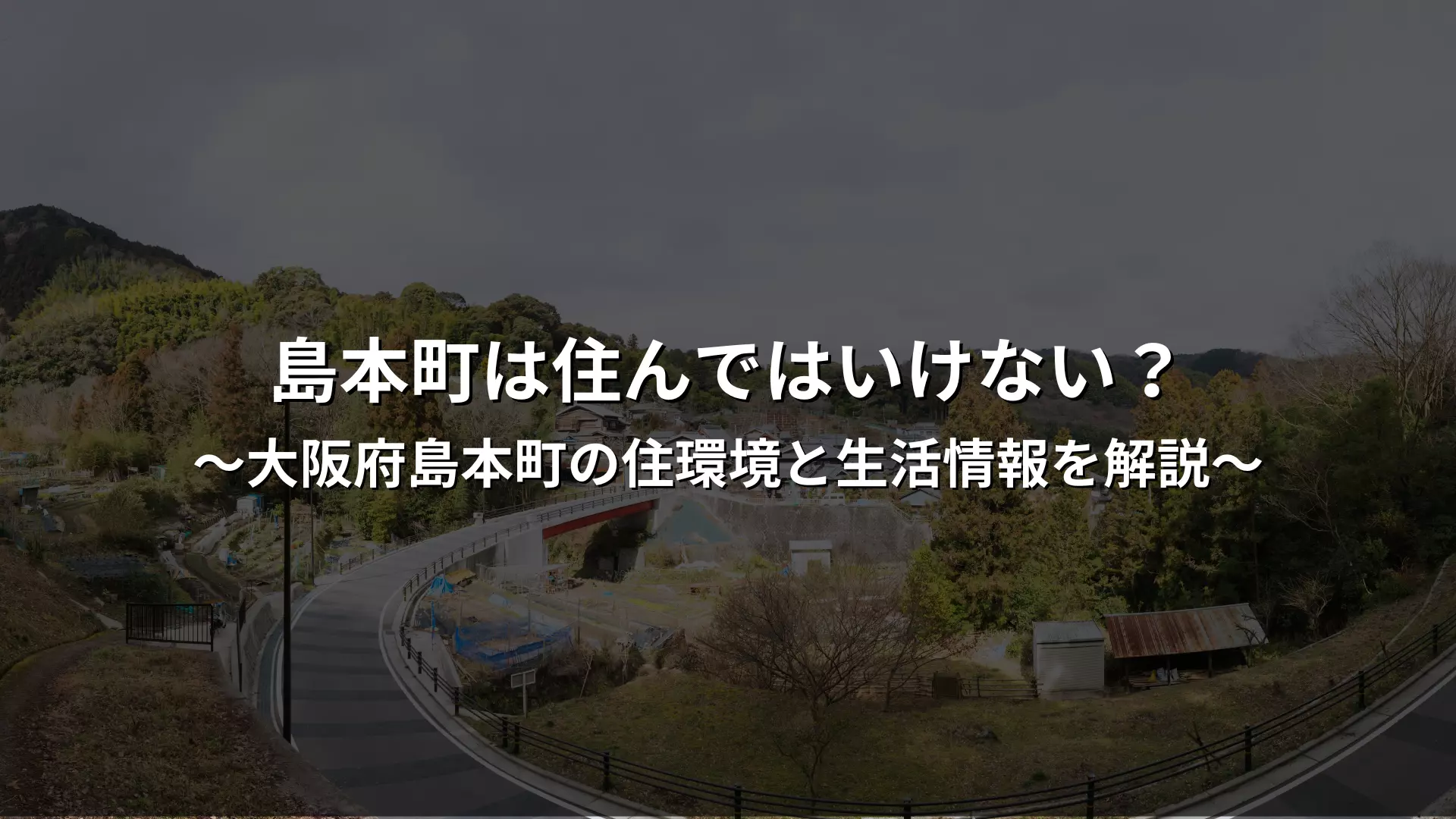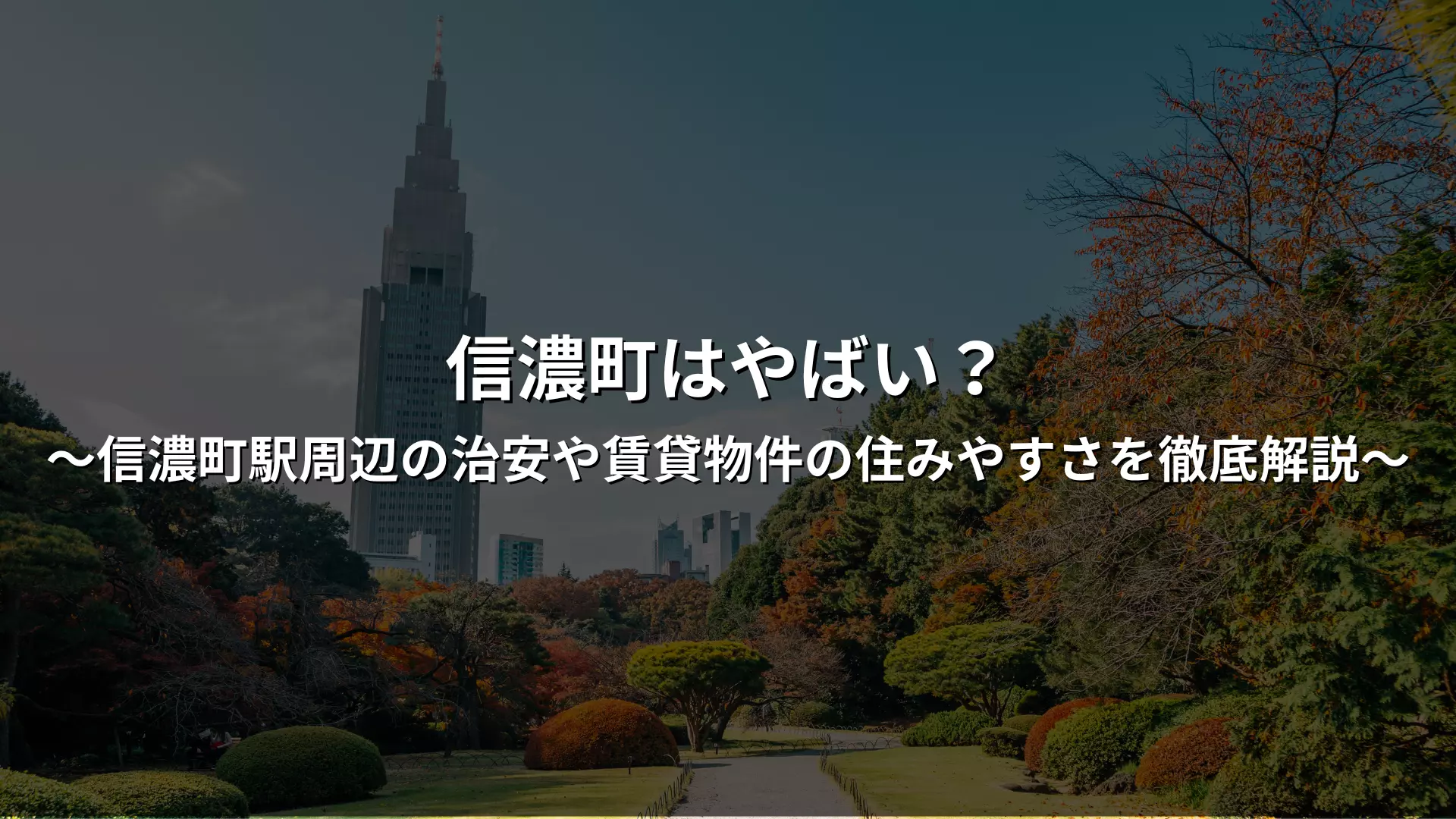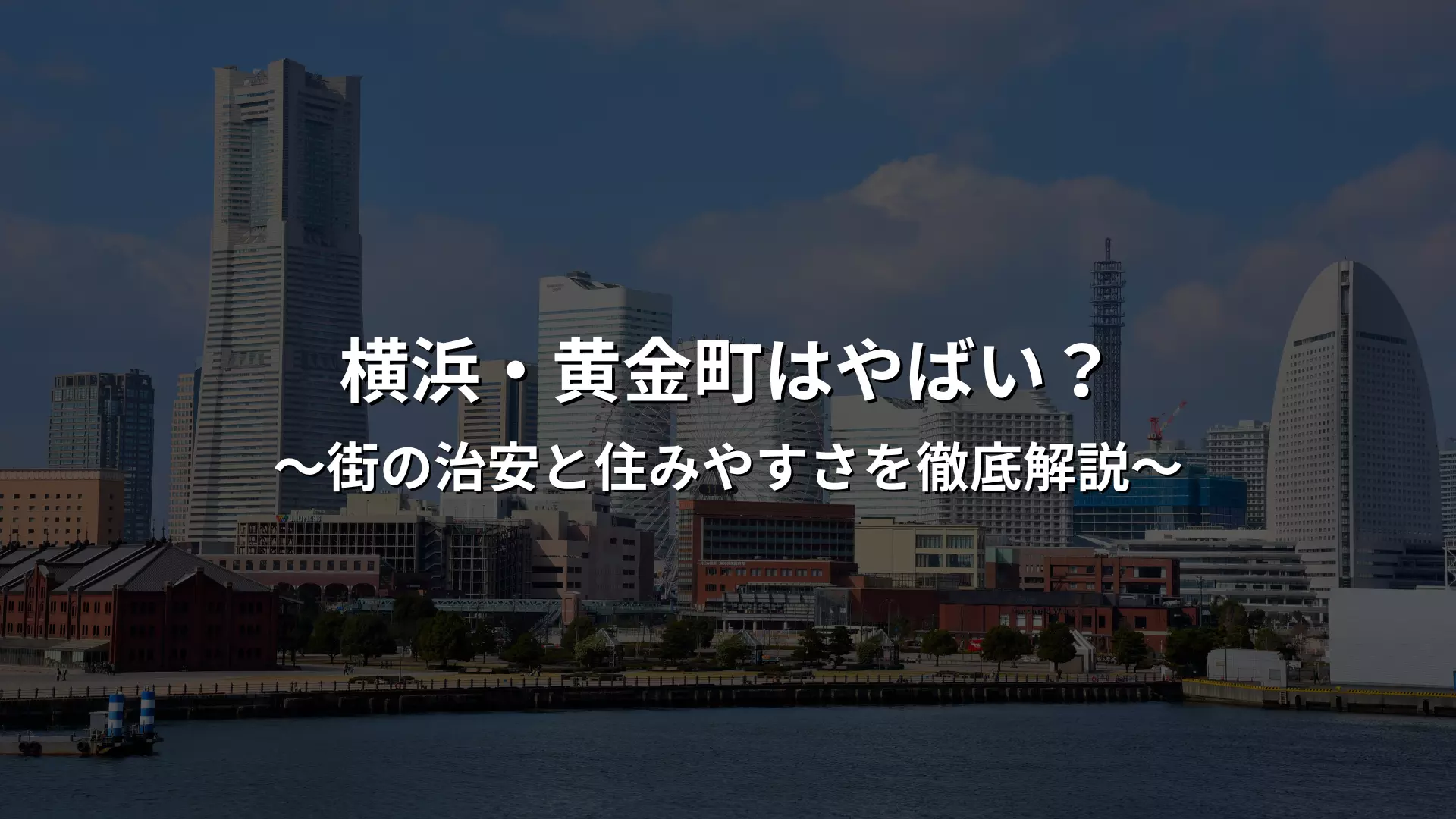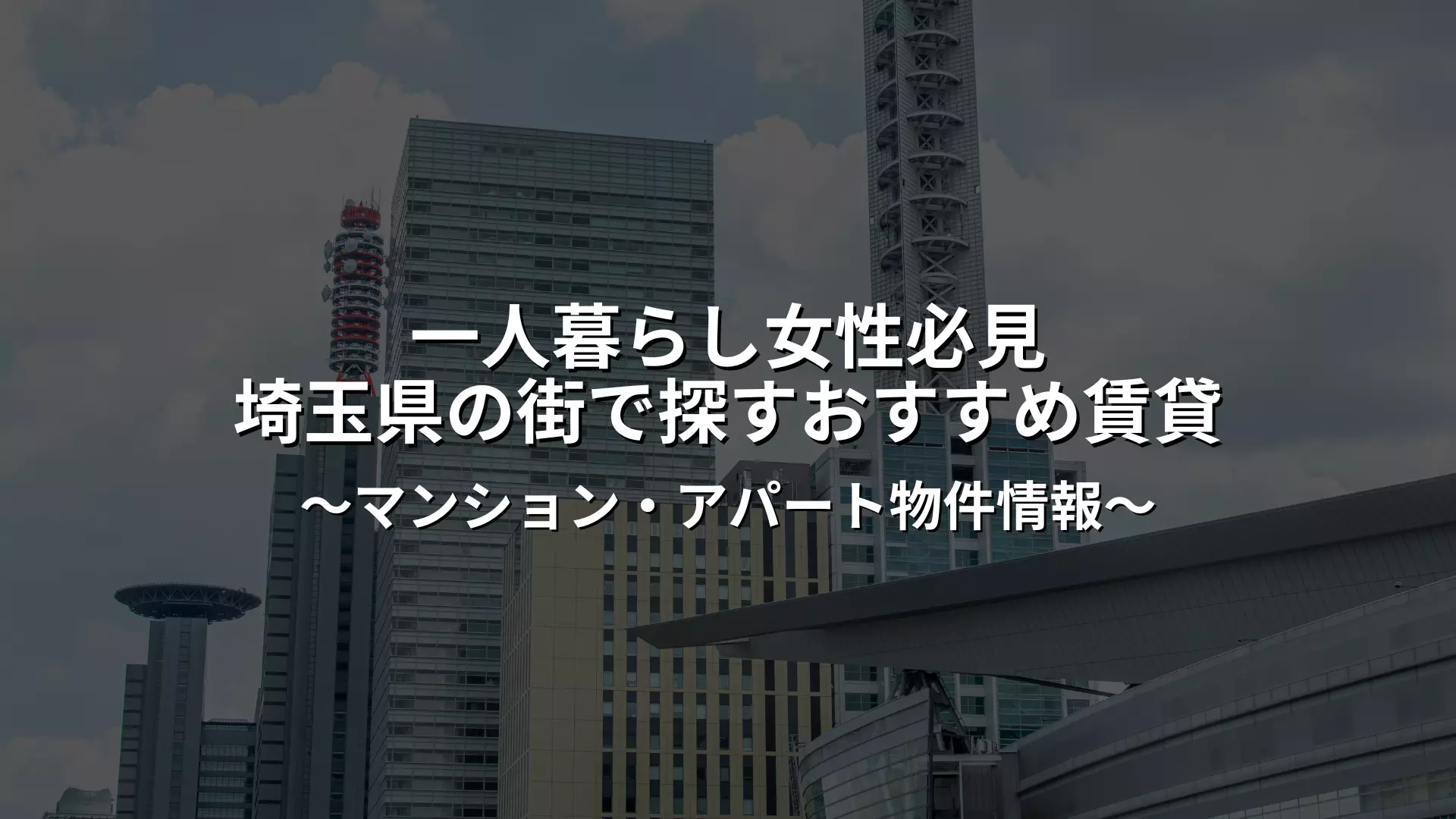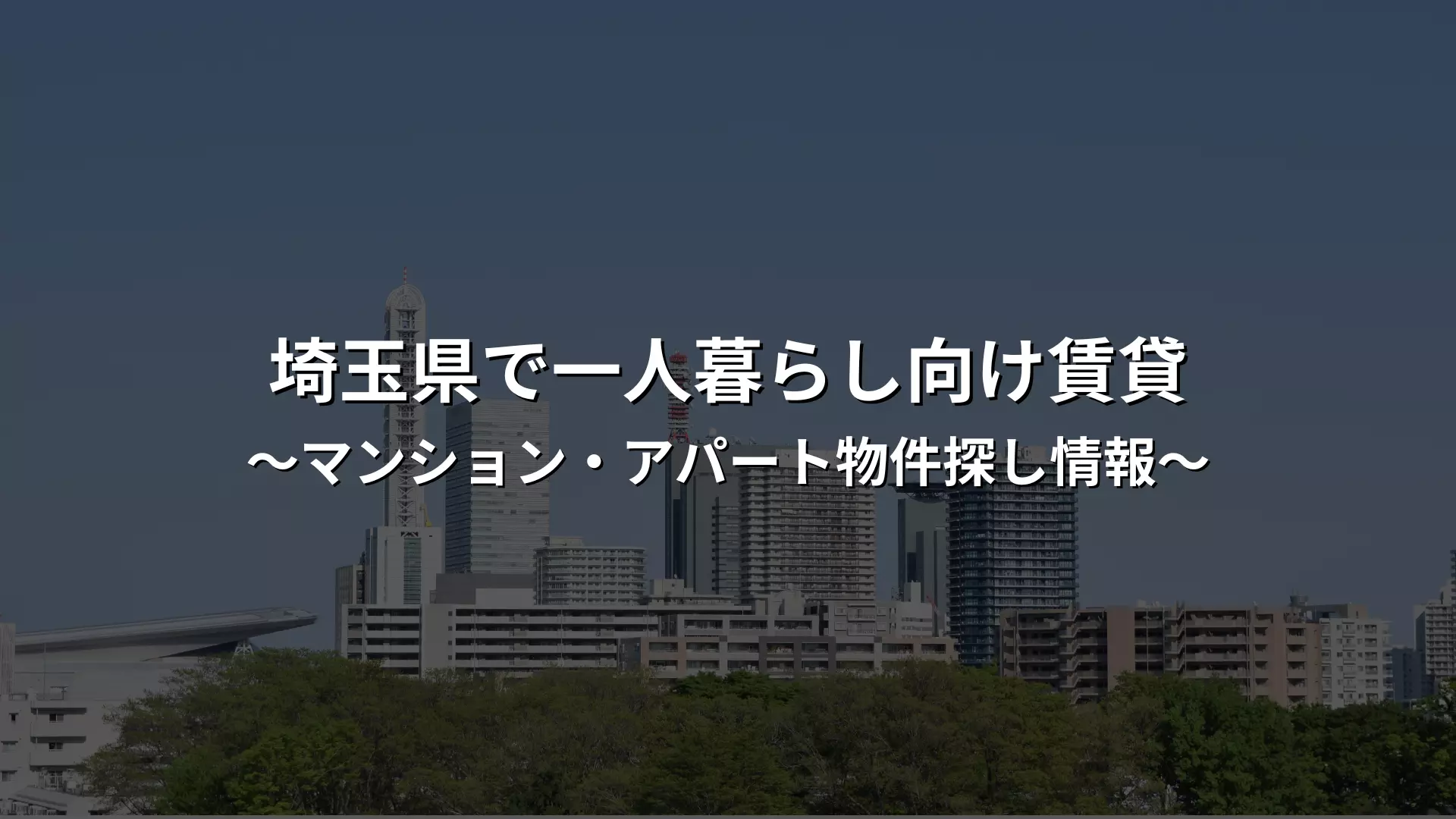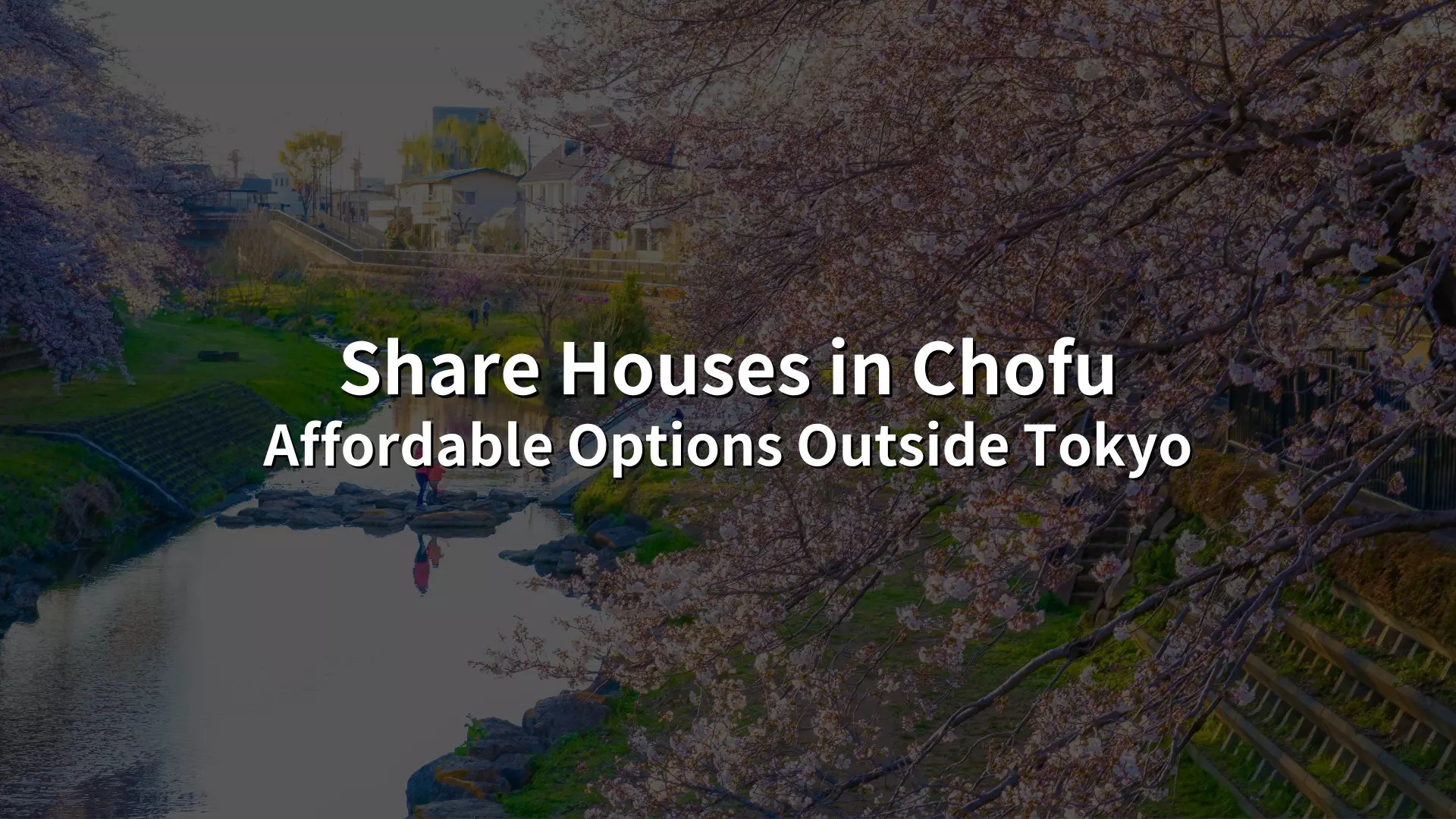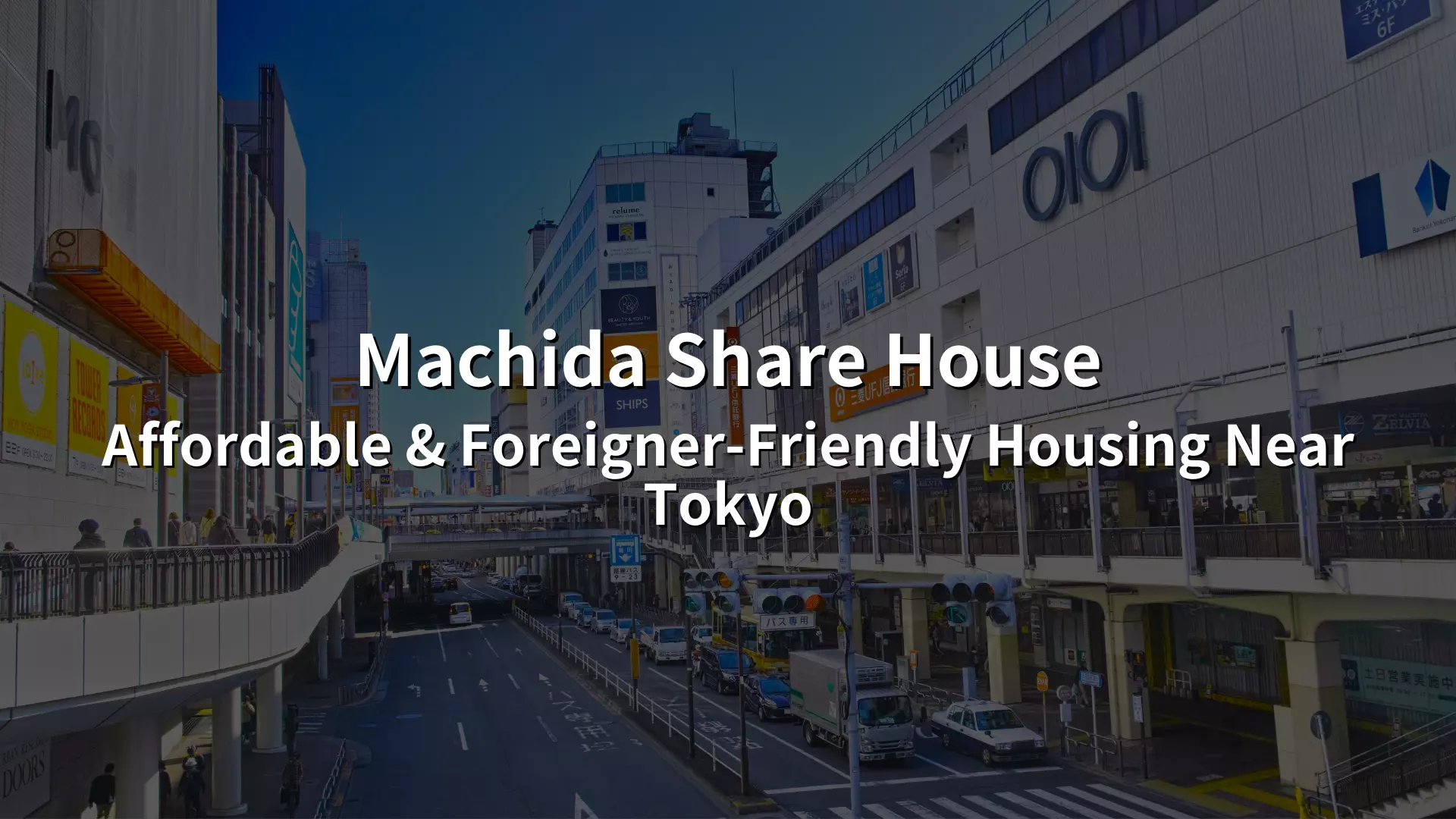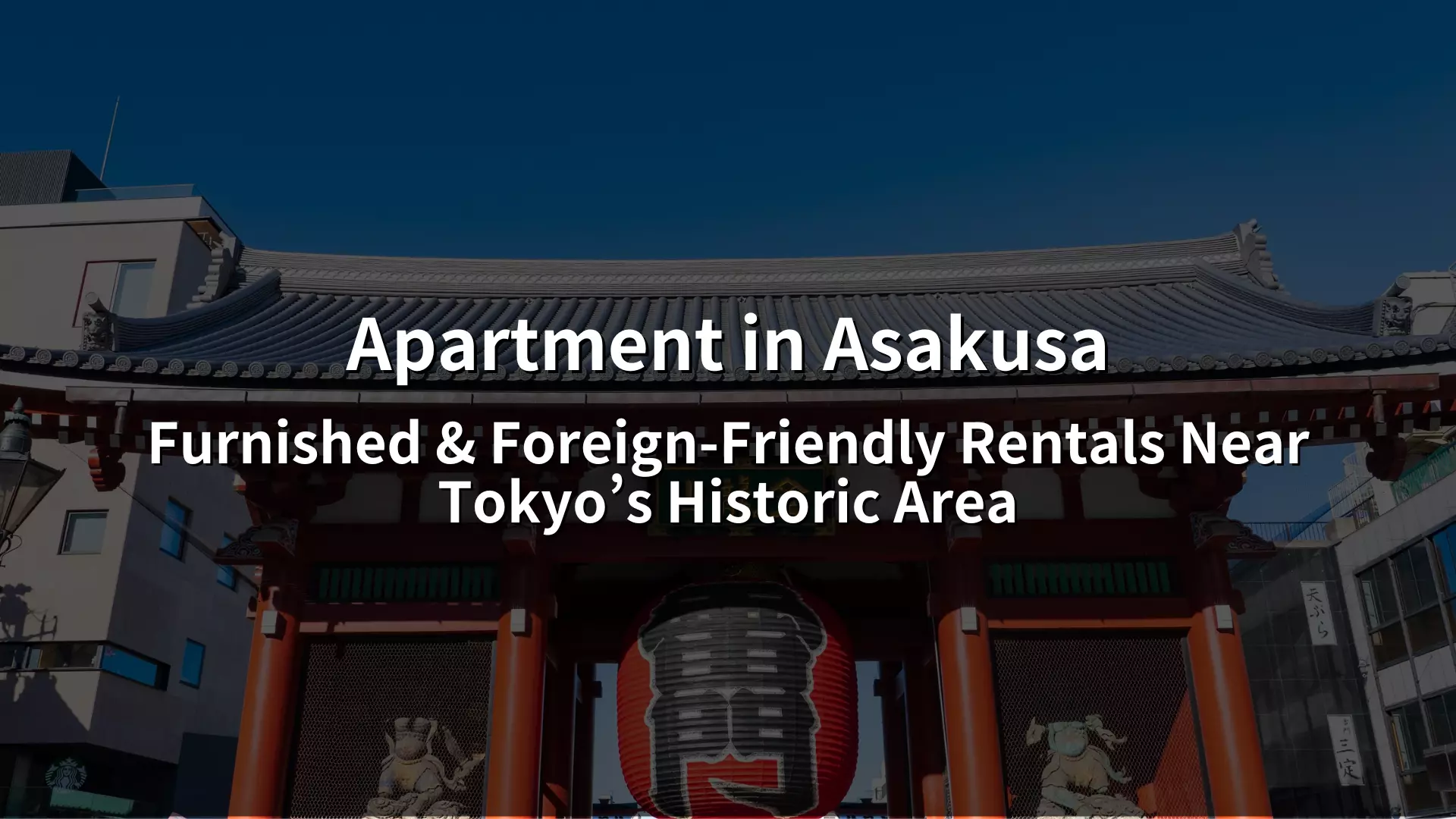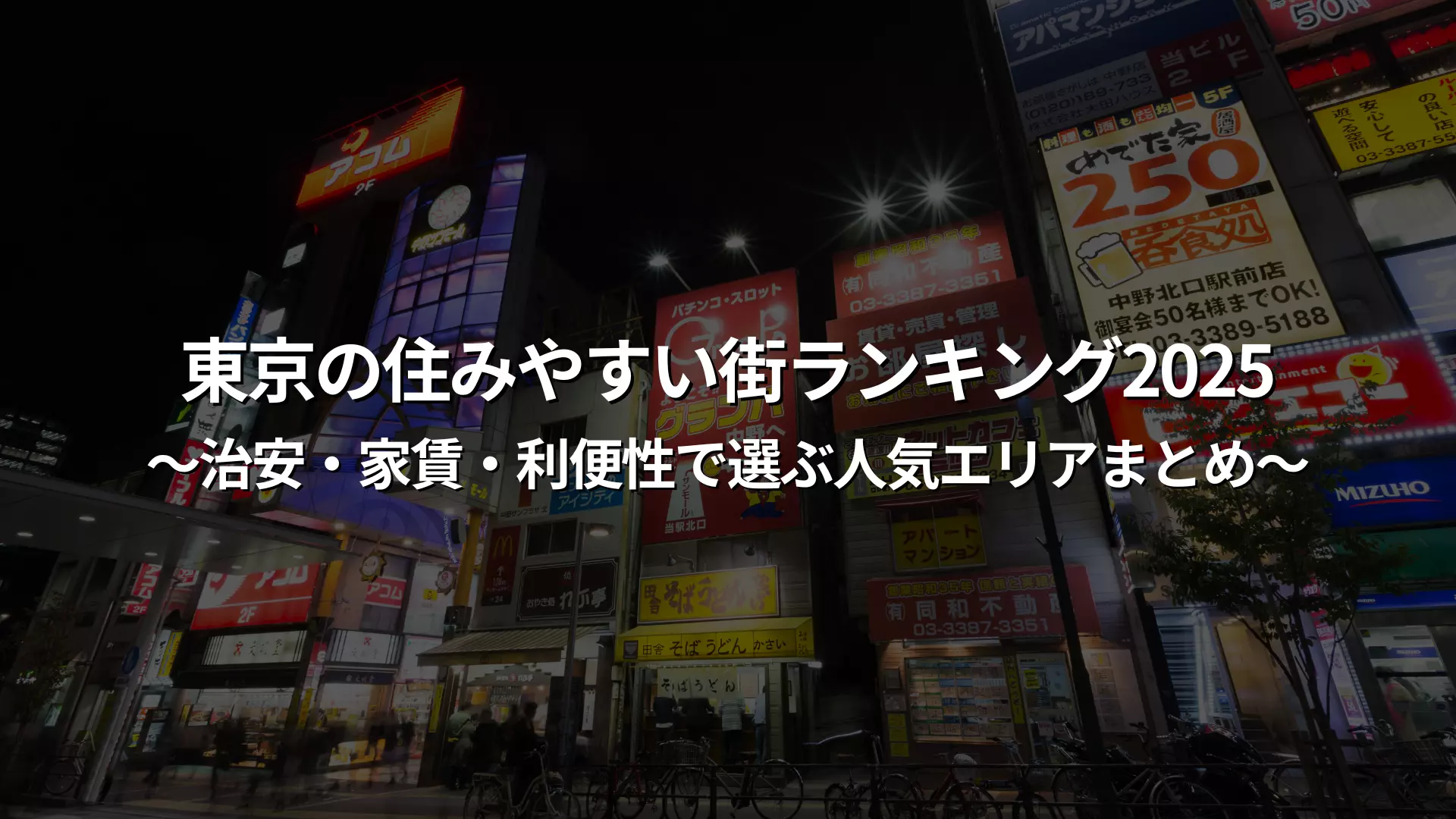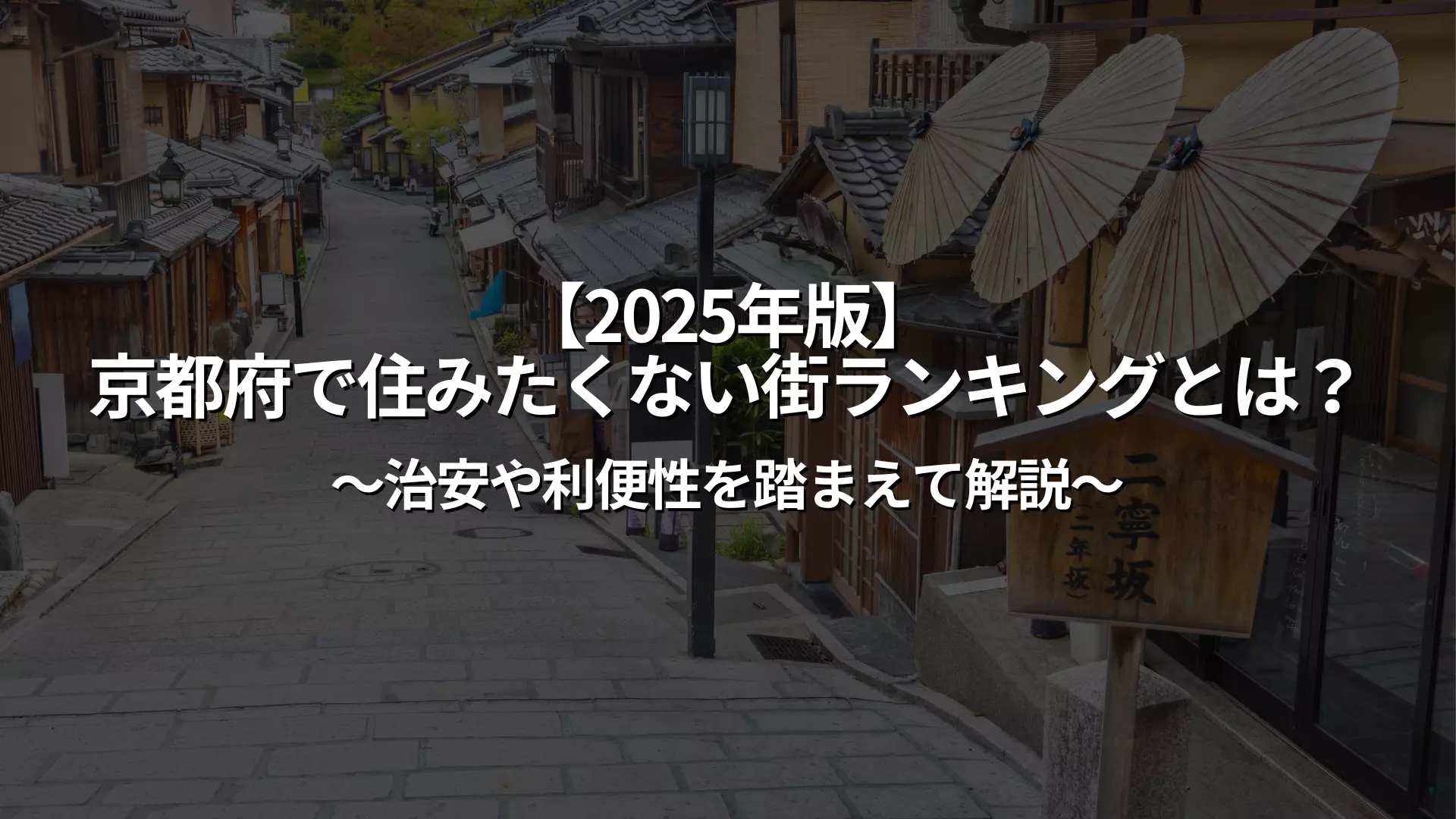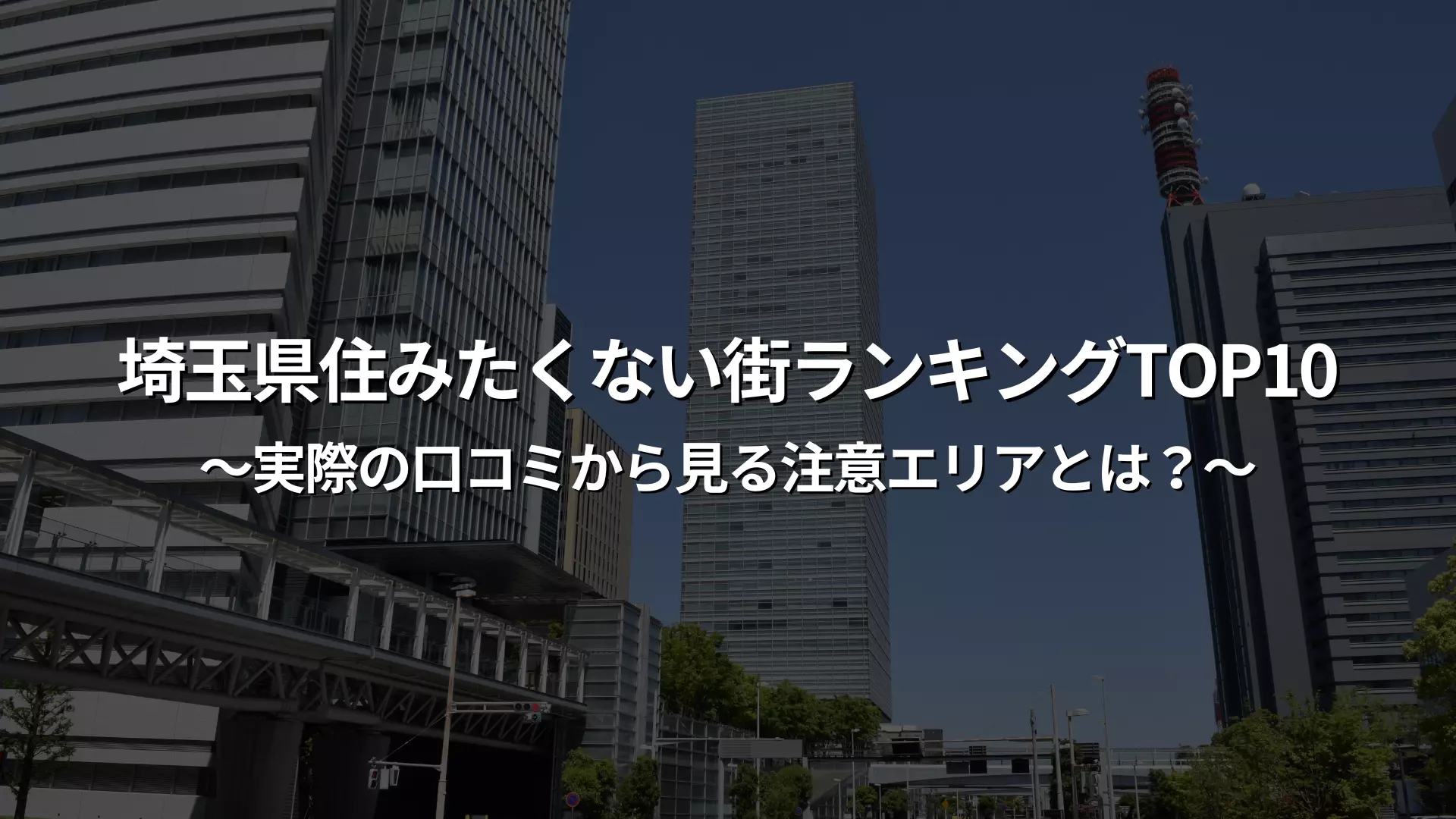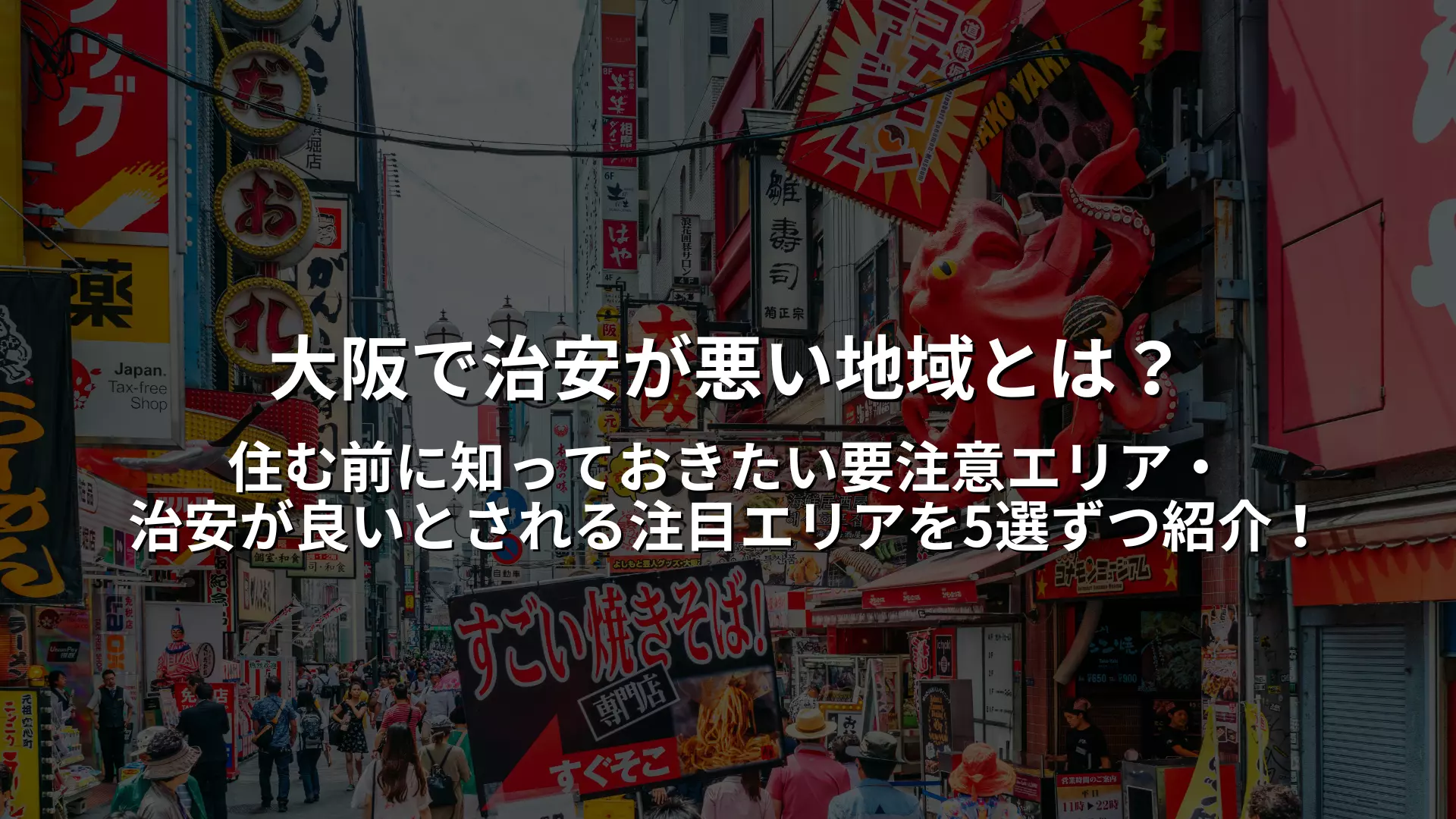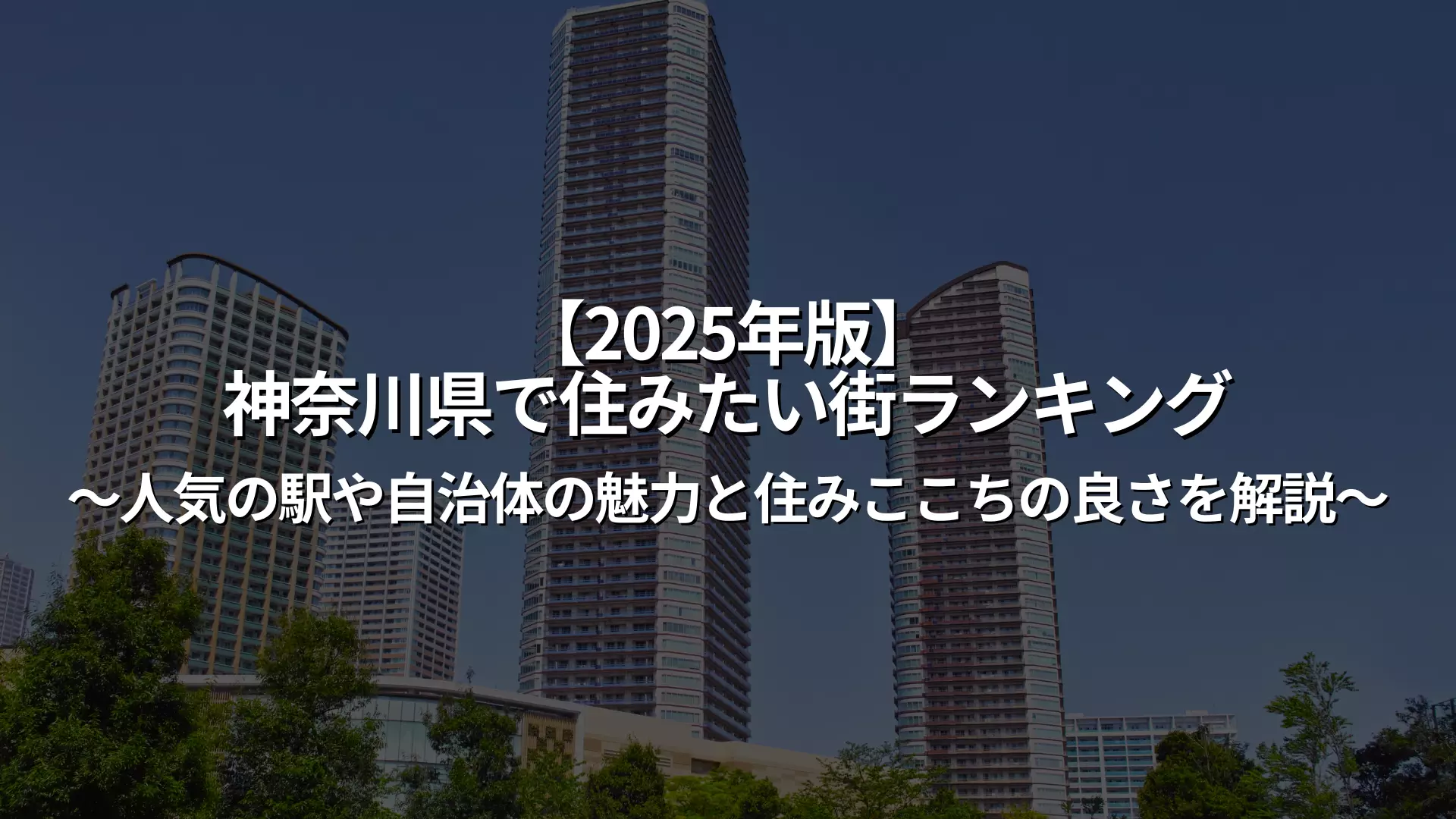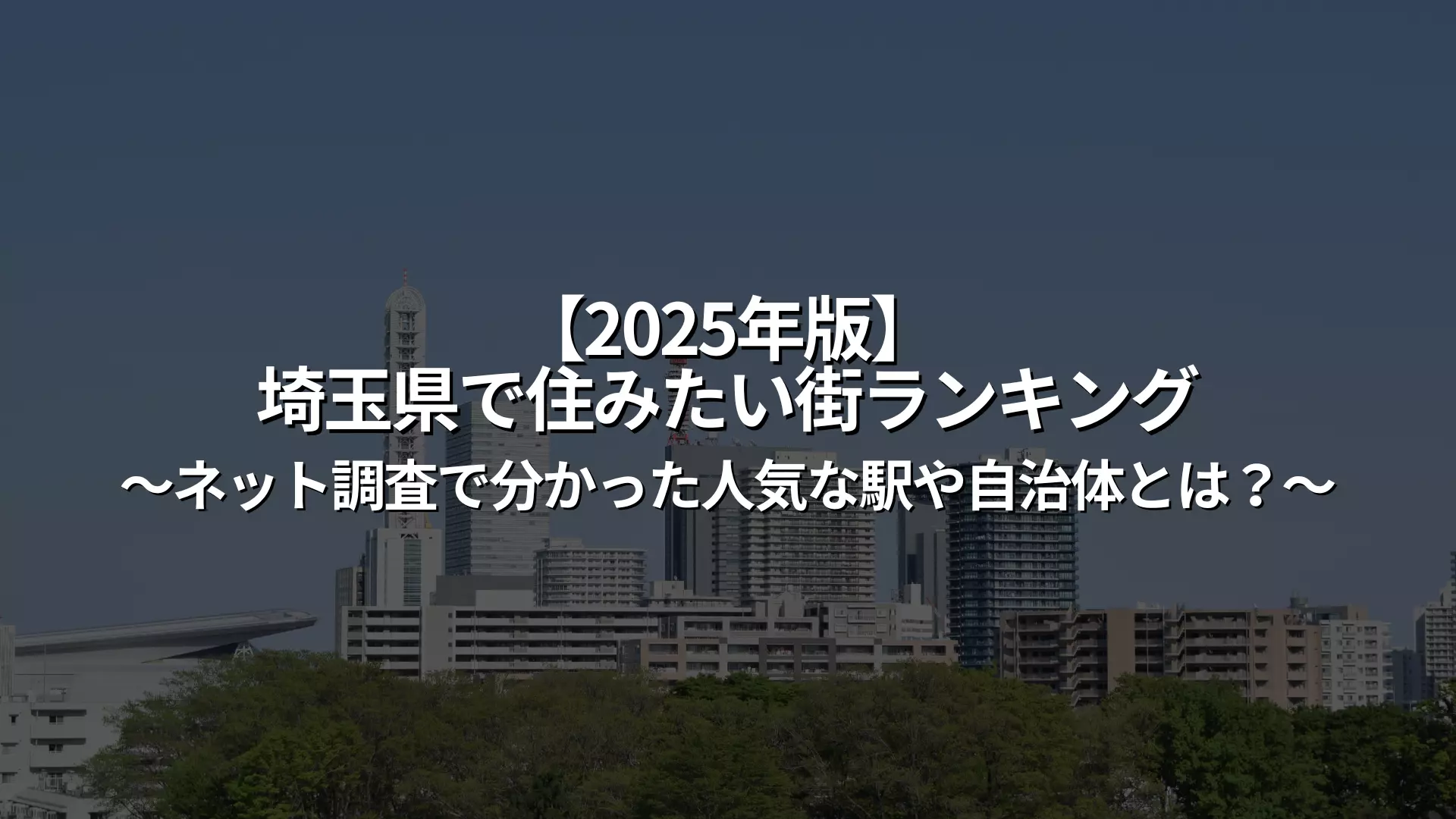What are the "most undesirable cities to live in" in Chiba Prefecture? Ranking overview and selection criteria
Chiba Prefecture's "Worst Cities to Live In" ranking introduces areas that are perceived as difficult to live in, based on word of mouth and reputation from residents and users, as well as various data on the living environment. Even if an area is attractive in terms of rent and convenience, there are large differences in the actual livability in terms of safety, noise, transportation access, infrastructure development, and more.
This article provides a comprehensive evaluation of Chiba Prefecture, taking into account factors such as commuter convenience, the population composition, the availability of amenities, and suitability for long-term stays. We'll provide helpful information to help those looking for rental properties or housing in Chiba Prefecture avoid disappointment.
Why are rankings of cities people don't want to live in so popular?
One of the reasons it has attracted attention is that it reflects the "real voices of residents" that can only be understood by living in the area. On the Internet, people share not only superficial impressions and images of the city, but also factors directly related to everyday stress, such as poor security, noisy areas in front of train stations, garbage problems, and inconvenient transportation.
This information is an important factor in making decisions when considering moving or relocating. Especially for families with children or those starting to live alone, knowing "where you should not live" is essential for living a safe and comfortable life.
Main indicators used in the selection (security, convenience, living environment, etc.)
When selecting cities in Chiba Prefecture that people would not want to live in, we take into consideration a number of objective indicators.
Particular emphasis is placed on
- "Poor public safety"
- "Congestion levels of stations and facilities"
- "Inconvenience of transportation"
- "Poor living environment (noise, garbage, lack of parks, etc.)"
Other important criteria are the convenience of public transportation and ease of access to shopping facilities and medical facilities. There are also many cases where underdeveloped infrastructure and high disaster risk are negative factors. In addition to this data, the rankings also compile resident reviews and reputations on social media, and are based on the actual experiences of people who "regret living there," resulting in a more reliable ranking.
Why don't you want to live there? Why is it unsuitable for permanent residence?
Many of the reasons why cities are considered "unwelcome places to live" are that, while they may be tolerable for temporary stays, the environment can be stressful for long-term living.
For example, areas with poor security are unsuitable for permanent residence due to concerns about raising children and going out at night. Additionally, areas with poor transportation access or a lack of medical and educational facilities can become inconvenient as people age and their family structure changes. Furthermore, concerns about the soil, disaster risk, and the closed nature of local communities are also reasons for avoiding permanent residence.
Cities in Chiba Prefecture that are considered "unwanted to live in" often have a combination of these negative factors, so it's important to check in advance to avoid regrets in the future.
Top 10 cities in Chiba Prefecture you don't want to live in
Cities in Chiba Prefecture that are considered "unwanted to live in" have a variety of negative factors, such as inconvenient transportation, poor public safety, and low convenience for daily life.
Here, we will introduce a ranking of areas that are considered difficult to live in, based on the opinions of actual residents, online reviews, and various data. For those considering moving or looking for a home in Chiba Prefecture, it is very important to know in advance which areas should be avoided.
We will explain in detail why each city on the ranking is difficult to live in and what kind of opinions are common about it.
Click here for properties in Chiba Prefecture
No.1: Around Chiba Station
While the area around Chiba Station has excellent transportation access, many people say it's "a place you don't want to live in." The main reasons are the congestion in front of the station, the poor security, and the large number of restaurants that are open late at night, making it difficult to live a peaceful life. Many women living alone and families, in particular, have expressed concerns about walking around at night.
Furthermore, while redevelopment is progressing, old buildings and vacant stores are still prominent in some areas, giving the impression that the city as a whole lacks unity.
Click here for properties in Chiba Prefecture
No. 2: Around Nishi-Funabashi Station
Nishi-Funabashi Station is a major transportation hub with multiple train lines, but the area is often rated as "difficult to live in." Reasons for this include the chaos of the downtown area around the station, concerns about safety, and the station being constantly crowded due to too many users.
In addition, the crowds and noise issues during rush hour can be stressful, making this an area that people looking for a quieter lifestyle would want to avoid.
Click here for properties in Chiba Prefecture
No.3: Around Kashiwa Station
The area around Kashiwa Station is convenient with many shopping facilities, but many people say that it is "chaotic and unsettling" as a living environment. In particular, there are many adult entertainment establishments and bars around the east exit of the station, and many people feel uneasy about the safety of the area.
Since the area is constantly busy until late at night, it can be difficult for people looking for a quiet life to live in. Some people have also pointed out issues with noise and litter.
Click here for properties in Chiba Prefecture
No.4: Around Matsudo Station
While Matsudo Station is popular due to its easy access to Tokyo, there are also many complaints about the area's poor security and rowdy clientele, and it is sometimes cited as a place people don't want to live.
While redevelopment is progressing in front of the station, there are still many old bars remaining, and some people are concerned about the atmosphere at night. For women living alone or families with children, it is hard to say that the area is a safe place to live.
Click here for properties in Chiba Prefecture
No.5: Around Shin-Urayasu Station
Shin-Urayasu Station is lined with luxury apartment buildings and at first glance appears to be a pleasant area to live in, but there are concerns about the weak ground, risk of liquefaction, and the artificial, inorganic streetscape.
The damage caused by liquefaction was widely reported during the Great East Japan Earthquake, and many people have felt uneasy about this area ever since. Although the area has a good infrastructure, people tend to avoid it due to the risk of disasters.
Click here for properties near Shin-Urayasu Station
No.6: Around Ichikawa Station
The area around Ichikawa Station is highly accessible and convenient for commuting to the city center, but some people have expressed concerns that "there are many old residential areas, making the cityscape messy" and "the safety at night is a concern."
Additionally, the relatively high cost of living and the congestion around the station are also factors that make it difficult to live in. In particular, it is sometimes considered to be somewhat unsuitable for people who want a quiet environment.
Click here for properties in Chiba Prefecture
No.7: Around Goi Station
Goi Station is an intersection of the Uchibo Line and Kominato Railway, but the surrounding area is close to an industrial area, and it faces issues in terms of convenience and living environment. There are few commercial facilities and there is little foot traffic at night, so people tend to feel uneasy about crime.
Another reason people say they don't want to live there is the lack of train services and inconvenient access to downtown Tokyo.
Click here for properties in Chiba Prefecture
No.8: Around Kisarazu Station
Kisarazu Station is accessible to Tokyo via the Aqua Line, but the area is generally car-oriented and it is easy to feel inconvenienced without a car.
Although the areas around the stations are being developed, there are many areas in the suburbs where vacant houses and vacant lots stand out, and it has been pointed out that depopulation is progressing. Many people find it difficult to live there because there are no shopping or medical facilities concentrated there.
Click here for properties in Chiba Prefecture
No.9: Around Tsudanuma Station
While the area around Tsudanuma Station is rich in commercial facilities, the congestion in front of the station and concerns about safety are reasons why it is cited as a "city you don't want to live in." The atmosphere is different on the north and south sides of the station, and people have complained that the south exit, which is close to the downtown area, is particularly noisy at night and people are concerned about smoking on the street.
Another disadvantage is that the high level of transportation access makes it easy for people to gather, but it lacks a sense of calm as a living environment.
Click here for properties in Chiba Prefecture
No.10: Nodashi Station Area
The area around Nodashi Station is a lackluster area, with development in front of the station lagging behind and many vacant stores. It also takes a long time to get to central Tokyo, making it less convenient for commuting to work or school, and young people tend to avoid the area.
While the community ties are strong, there are also complaints that it is difficult for people from outside to fit in, and there are cases where people feel stressed while getting used to the new environment.
Click here for properties in Chiba Prefecture
Search for a room
Only furnished properties with appliances are listed!
Deep dive into the reasons why people say they "don't want to live" in Chiba Prefecture
Some cities in Chiba Prefecture are said to be places people don't want to live in, but behind this lie the real voices of residents and issues unique to the area.
For example, factors such as public safety, noise, garbage issues, and the inconvenience of public transportation are information that can only be seen by actually living in the area. Even in areas near train stations that appear convenient, the safety of the area at night and the crowds can be stressful. Furthermore, while redevelopment is progressing, rapid population growth and a construction boom can also disrupt the balance of the city.
In this chapter, we will explain in detail the reasons why Chiba Prefecture is perceived as "difficult to live in" from the perspectives of word of mouth, statistics, and urban development.
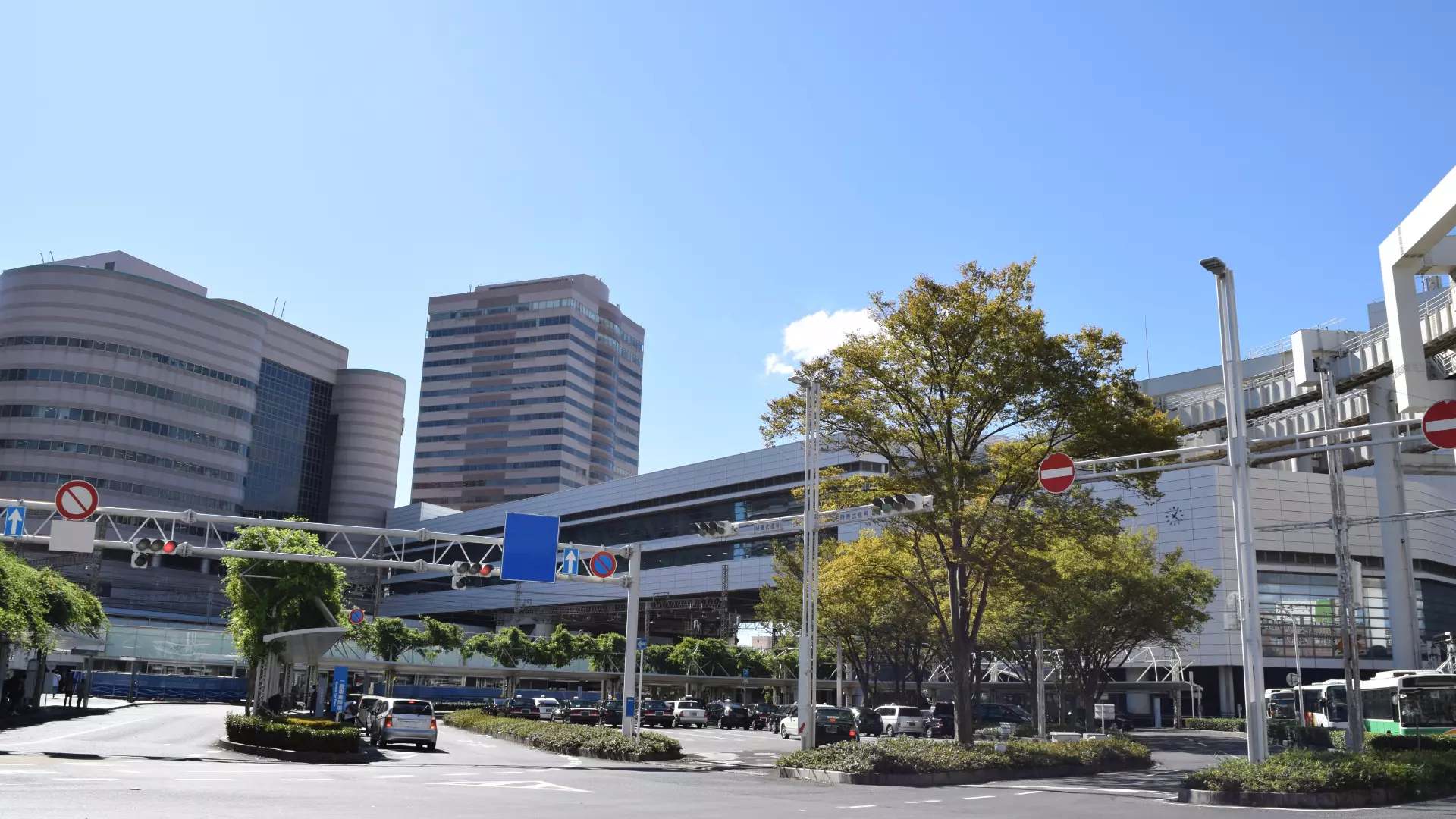
Real issues revealed through residents' opinions and reviews
Much of the information about "Cities in Chiba Prefecture you don't want to live in" comes from word of mouth and comments on social media from people who actually live in those cities.
The most common complaints are those related to everyday life, such as "The streets are dark and scary at night," "It's noisy in front of the station," and "Rules for putting out trash aren't being followed." There are also many complaints about the lack of local services, such as "It's not a comfortable place to live compared to the cost of living" and "There's a lack of educational and medical facilities."
These honest opinions convey the "intuitive feeling" about the livability of an area, which is difficult to see through government statistical data alone, and are an important factor to consider when considering moving.
Cities with high security and actual crime rates
The most common reason given for not wanting to live there is the poor security situation. Even within Chiba Prefecture, areas with a high concentration of late-night establishments around train stations and areas with developed entertainment districts are prone to nighttime trouble, noise pollution, and problems with drunk customers.
In fact, statistics from the National Police Agency and public data from local governments show that some cities, such as Matsudo, Kashiwa, and Chiba City's Chuo Ward, have high rates of criminal offenses, which is a cause for concern for young people and women living alone. The first step in choosing a city where you can live safely is to check the crime rate, in addition to considering the convenience of train stations and the abundance of commercial facilities.
Commonalities between cities with good access but difficult to live in
There are towns in Chiba Prefecture that are considered "difficult to live in" despite having excellent access to the city center. Typical examples of these are areas where congestion, noise, and late-night security issues stand out around train stations.
For example, while Nishi-Funabashi Station and Chiba Station are conveniently located, they are often crowded with people and have a high concentration of restaurants and pachinko parlors in front of the stations, making them an unsettling living environment. Furthermore, in areas where the boundaries between residential and commercial areas are unclear, it is difficult to ensure a quiet lifestyle, and noise, garbage, and illegal parking tend to be common problems.
If you judge a place based solely on convenience, you may find it surprisingly difficult to live there.
Changes in living environment due to redevelopment and population change
In recent years, Chiba Prefecture has seen rapid changes in its cityscape due to urban development and redevelopment.
For example, while redevelopment has led to an increase in commercial facilities, new issues have also emerged, such as overcrowding, traffic congestion, and a lack of daycare centers. Furthermore, population growth has disrupted the balance of local communities, leading to an increasing number of complaints that residents are treated like outsiders and are prone to trouble with their neighbors.
Although these changes may appear positive at first glance, they often have a negative impact on livability.
On the other hand, what are the characteristics of a "livable city"?
While there are cities in Chiba Prefecture that people say they "don't want to live in," there are also "easy-to-live-in" cities that many people choose. So, what are the characteristics of an easy-to-live-in city? What they all have in common is a good balance of good public safety, low disaster risk, and a well-developed infrastructure. Other key points include convenient commuting to work or school, and generous government services such as childcare and elderly support.
Here, we will introduce the specific conditions for a "livable city" from three perspectives that you should know in order to avoid making a mistake when choosing a home.
A balance between public safety, disaster risk, and convenience
A livable city has all the elements to support a safe and secure life.
For example, in terms of public safety, areas with low crime rates and where people can feel safe going out at night are preferred. In addition, stability of the ground and low risk of disasters such as flooding and liquefaction are also important.
Furthermore, if the facilities necessary for daily life, such as supermarkets, hospitals, schools, and banks, are all within walking distance, it becomes easier to live comfortably. Cities that have a good balance of these three elements naturally tend to be rated as "cities where people want to live."
A transportation network that makes life easy even without a car
Many of the cities in Chiba Prefecture that are considered easy to live in have well-developed public transportation systems such as trains and buses, making it easy to live there even without owning a car.
For example, areas around stations on the JR Sobu Line, Tozai Line, Keisei Line, and Tsukuba Express have good access to the city center, making them convenient for commuting to work or school. Commercial facilities and medical institutions are concentrated in areas near stations, making daily shopping and medical appointments easy. For seniors, students, and single people who don't own cars, the convenience of public transportation is a major factor that directly affects their quality of life.
Tips for choosing a city for families with children or single people
When choosing a city that's easy to live in, it's essential to consider what suits your life stage. For families with children, the number of daycare centers and schools, the educational environment, good public safety, and the number of parks are important. On the other hand, for those living alone, the key is to find a balance between proximity to the station, 24-hour stores, stable public safety, and average rent.
Other factors that can be used to help choose a city include local government childcare support systems, disaster prevention measures, and support for elderly people living alone. The key to choosing a home you won't regret is to clarify the requirements based on your household composition and find a city that matches them.
Search for a room
Only furnished properties with appliances are listed!
Top 5 Livable Cities in Chiba Prefecture (Comparison Included)
When choosing a city in Chiba Prefecture that is easy to live in, it is essential to consider a comprehensive perspective, including not only convenience for commuting to work or school, but also public safety, the availability of amenities, and the environment for raising children.
Here we will introduce five carefully selected towns that receive high marks for livability, while also focusing on the differences with the areas featured in the "Ranking of Cities in Chiba Prefecture Where People Don't Want to Live." Compare the characteristics of each area and use this as a reference when choosing a town that suits your lifestyle.
① Kashiwanoha Campus Station | The entire city is a smart city
Kashiwa-no-ha-Campus Station is attracting attention as an area in Chiba Prefecture where cutting-edge urban development has progressed. The entire town has been designed as a "smart city," and is characterized by the compact arrangement of educational institutions, medical facilities, and commercial facilities.
The area has good public safety and is dotted with lush green parks, making it popular with families with children and the elderly. Redevelopment has also brought new infrastructure, and future asset value is expected to increase. While average rents are somewhat high, it is a very well-balanced city for those seeking a comfortable living environment.
② Tsudanuma Station | Excellent access to the city center and convenient for daily life
Tsudanuma Station was also ranked 9th on the list of cities people don't want to live in, but as a major station on the JR Sobu Line, it has the advantage of being one of the best places in Chiba Prefecture to access the city center. It's easy to commute to Tokyo Station and Shinjuku, and there are shopping malls, restaurants, and medical facilities around the station, making it extremely convenient for daily life.
The atmosphere is different on the north and south sides of the station, but the north exit side is quiet and has a large residential area, making it popular with a wide range of households, from single people to families.
③ Makuhari Hongo Station | A balance of educational and commercial facilities
Makuhari Hongo Station is located on the border between Hanamigawa Ward and Mihama Ward in Chiba City, and is a highly convenient area with access to two lines, the Keisei Line and the JR Line. There are many elementary and junior high schools and parks in the surrounding area, making it a popular area for families with children due to its excellent educational environment.
In addition, there are large facilities such as AEON Mall Makuhari New City and Makuhari Messe in the neighborhood, so you can enjoy shopping and leisure activities. The area is also safe, and although redevelopment is not progressing, it boasts stable popularity as a quiet residential area.
④ Nagareyama-Otakanomori Station | Popular with families with children
Nagareyama-Otakanomori Station is a rapidly developing area that serves as a junction between the Tsukuba Express and the Tobu Noda Line. Coupled with Nagareyama City's policies that place emphasis on child-rearing support, the area is particularly popular among families.
With a large shopping mall, a park rich in nature, and medical facilities, this is a city where ease of living and a sense of security coexist. There are many newly built apartments and detached houses, and the area has good public safety. With great potential for future development, this is one of the most popular and livable cities in Chiba Prefecture.
⑤ Motoyawata Station | Directly connected to Tokyo and full of commercial facilities
Motoyawata Station is a major transportation hub with access to three lines: the JR Sobu Line, the Toei Shinjuku Line, and the Keisei Line, making access to the city center extremely smooth. There are plenty of supermarkets, restaurants, hospitals, and public facilities around the station, making the area one of the best in Chiba Prefecture in terms of infrastructure for daily life.
The residential area is quiet and safe, making it a popular area for people living alone and seniors. As a city that combines convenience and a sense of security, many people want to live here for the long term, and it is always ranked highly in "livable city rankings."
How to avoid regrets when looking for a home in Chiba
When searching for a rental property or a home in Chiba Prefecture, if you only focus on "low rent" or "good transportation access," you may end up regretting your decision once you start living there.
For example, if you don't check thoroughly in advance, you may easily overlook things like poor public safety, noise levels, a lack of amenities, and disaster risks. There are good reasons for this, especially in areas that are known as "City you don't want to live in in Chiba Prefecture."
To avoid regrets, it is important to assess the city from multiple perspectives, such as visiting the site, researching the surrounding environment, and consulting with experts.
The importance of on-site visits and surrounding area surveys
When looking for a place to live in Chiba, it's important to visit the area and check it out in person, rather than just relying on information online. There's a lot of information you can only get on-site, such as the distance from the station, the brightness of the roads, the atmosphere day and night, the sounds of daily life in the neighborhood, and the public safety situation.
It's also a good idea to walk around and check whether there are convenience stores, supermarkets, medical facilities, and daycare centers. Even if an area looks convenient on a map, there are surprisingly many factors that can be stressful when you actually live there, such as many slopes, narrow roads, and complicated garbage disposal procedures. Visit the area at multiple times to see if it suits your lifestyle.
Focus on the quality of the neighborhood, not just the rent
If you choose an apartment based solely on low rent, you run the risk of moving to a city you don't want to live in. In fact, areas with many cheap apartments in Chiba Prefecture often have unstable public safety, or problems with the living environment such as noise and garbage disposal issues.
"City quality" includes less visible elements that support daily life, such as the level of infrastructure, the demographics of residents, the atmosphere of the local community, and the cleanliness of the streets. Choosing an environment where you can live comfortably for the long term, rather than saving on rent in the short term, will ultimately lead to a more satisfying home selection.
If you're unsure, consult a specialist.
If you're unsure about where to live in Chiba, consulting a real estate professional is an effective option. If you're renting, consult a local real estate company. If you're buying a home, consult an advisor with experience in home buying. They'll be able to recommend areas and properties that match your desired conditions.
In particular, local information such as "Is this city easy to live in?" and "What is the safety like?" may be fragmented online, but real estate agents often have an understanding of the opinions of local residents and the latest realities. By getting a third-party perspective, you can become aware of risks and opportunities that you may not have noticed on your own.
Search for a room
Only furnished properties with appliances are listed!
Summary | Will the "city you don't want to live in" change? Choose a city with future prospects in mind
Each of the areas in Chiba Prefecture that are considered "unwelcome places to live" has its own issues and reasons, but urban redevelopment and government initiatives can change the impression of the city and how comfortable it is to live in. In fact, there are many examples of areas that were once avoided but are now gaining recognition as "easy places to live."
When choosing a place to live, it's important to consider not only the current living environment, but also future development potential and the prospects for improvements in livability. Rather than being limited to short-term low rent and convenience, identifying a "city where you can live with peace of mind" from a long-term perspective will lead to a home selection you won't regret.

